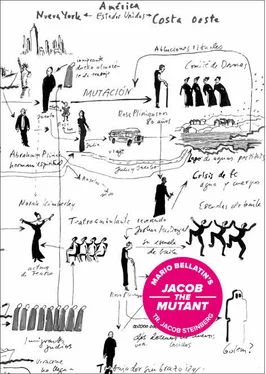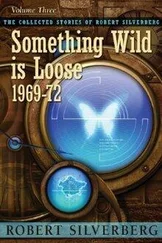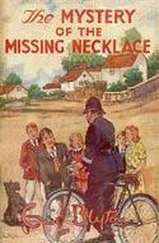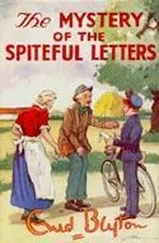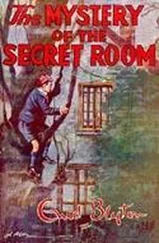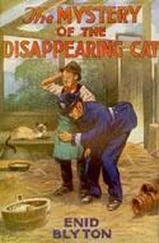Mario Bellatin - Jacob the Mutant
Здесь есть возможность читать онлайн «Mario Bellatin - Jacob the Mutant» весь текст электронной книги совершенно бесплатно (целиком полную версию без сокращений). В некоторых случаях можно слушать аудио, скачать через торрент в формате fb2 и присутствует краткое содержание. Год выпуска: 2015, Издательство: Phoneme Media, Жанр: Современная проза, на английском языке. Описание произведения, (предисловие) а так же отзывы посетителей доступны на портале библиотеки ЛибКат.
- Название:Jacob the Mutant
- Автор:
- Издательство:Phoneme Media
- Жанр:
- Год:2015
- ISBN:нет данных
- Рейтинг книги:3 / 5. Голосов: 1
-
Избранное:Добавить в избранное
- Отзывы:
-
Ваша оценка:
- 60
- 1
- 2
- 3
- 4
- 5
Jacob the Mutant: краткое содержание, описание и аннотация
Предлагаем к чтению аннотацию, описание, краткое содержание или предисловие (зависит от того, что написал сам автор книги «Jacob the Mutant»). Если вы не нашли необходимую информацию о книге — напишите в комментариях, мы постараемся отыскать её.
is a novella in a perpetual state of transformation — a story about a man named Jacob, an ersatz rabbi and owner of a roadside tavern. But when reality shifts, so does Jacob, mutating into another person entirely.
Jacob the Mutant — читать онлайн бесплатно полную книгу (весь текст) целиком
Ниже представлен текст книги, разбитый по страницам. Система сохранения места последней прочитанной страницы, позволяет с удобством читать онлайн бесплатно книгу «Jacob the Mutant», без необходимости каждый раз заново искать на чём Вы остановились. Поставьте закладку, и сможете в любой момент перейти на страницу, на которой закончили чтение.
Интервал:
Закладка:
Jacob left on his search.
After a few days of investigating, he found him and, luckily, managed to convince him to stuff the beasts he had managed to maintain with such care in the Tiny Nocturnal Zoo.
But upon returning to his village, Jacob returned to the news that his wife had left him.
His wife had fled with someone — the young Anselm, who had helped her manage the tavern — a man who seemed to have very clear plans to reach the American continent as quickly as possible.
It would seem as though Jacob’s words that the Torah looked with good eyes upon the wife of a rabbi managing a tavern had been so convincing that when that establishment closed to the public she realized that her life had no meaning at Jacob’s side.
Upon hearing the news — all while the distant cousin made preparations to stuff the animals from the Tiny Nocturnal Zoo — Jacob tried to console himself faced with his loss by reciting out loud a passage from one of his Sacred Books:
When a human being climbs into bed it is first appropriate for him to somehow crown the Kingdom of Heaven and then recite a verse of loving kindness.
The companions who aided in the creation of the Zohar elucidated this: that when a human being sleeps in his bed, his soul abandons the body and wanders above.
The aforementioned companions never clarified what the blessed “above” meant.
Nevertheless, they pointed out that each and every soul did so — this wandering — according to its own manner.
After repeating these paragraphs a number of times, what Jacob did during this time was endlessly sleep.
That is the other fundamental passage that isn’t found in the book Jacob the Mutant .
The one about Jacob’s deep sleep.
Jacob perhaps held out hope that the moment would come when his soul would wander above and find a certain reason for his wife’s conduct.
What is written? In a dream, in a vision of the night (Job 33:15).
Perhaps Jacob dedicated himself during those days to putting into practice this idea that when human beings lie down in their beds, they fall asleep and their souls leave them, as is written, as they slumber in their beds , then He, God, opens men’s ears.
And thus, the Holy Blessed One tells the soul, through the grade or stage on which the poor soul stands, both the future of the Universe and matters of less transcendence.
According to his innermost thoughts — those disturbing or exhilarating thoughts, those that truly ought to be remembered, his mind must transform them into a transitory or momentary thought.
It is through these means that the human being is capable of traveling down the Universe’s path of admonition.
Jacob knew that an angel had the information, who would at the same time transfer it to the soul and from the soul to the human being.
And this dream came from above, from the moment when the souls left their bodies and each one rose according to its manner.
As the cousin carried out his task in the most meticulous way possible, Jacob remained asleep.
And he didn’t bring forward the sleep of the righteous, as one could expect.
He wasn’t in that state of rest that both humans and animals tend to fall into in order to continue their customary habits.
I think of Jacob’s sleep as somewhat similar to the state of remaining enclosed for two days in a prayer cell by the sheikha’s order with the goal of repeating the ninety-nine names of God until exhaustion.
A state in which one is in a place of curious wakefulness.
A place where it is possible to find myself once again with my grandfather standing in front of a group of camels that display their dirt-covered backs, and to simultaneously discern the border town where Joseph Roth decided to place a tavern known as The Border.
A space where I can hear the absurd tales my grandfather would make up about Macaque and Master Porcupine.
It seems to me that only in a situation such as this one — finding myself enclosed in a prayer cell — could it be possible for me to imagine a poster like that of the film Enter the Dragon , with Bruce Lee as its protagonist.
I am certain that it was not the intent of my order’s sheikha — when she suggested that I remain in a prayer cell to repeat the ninety-nine names of God in an interminable manner — for me to remember such a concrete phase of my childhood.
For me to hear yet again, in those circumstances, of the existence of a strange teacher who studied nothing less than a science that he had christened the Mariotic Theory.
In one of Joseph Roth’s texts, long forgotten in those archives, it is written that Jacob tried more than once to explain to the children in his charge that the Merciful One — in this case, God — would be capable of forgiving them only if at some point in their lives they were in condition to explain Him.
That is to say, to give testimony to the existence of God Himself.
Nevertheless, giving testimony of the existence of God Himself is what I suspect my grandfather was doing with me during our visits to the camels.
Sometimes he told me that Macaque was not the character who lived in a camper in a park near the zoo where we took our walks, but a Slavic woman who some time later became the artist Norah Kimberley when she went to live in the United States.
I don’t believe that my grandfather suffered from any type of mental imbalance that would make him constantly change the versions of his stories he would tell me.
Once he even used our entire walk around the zoo — our visit to the camels, to the seal pool, and the birds of prey preparing to hunt the small birds placed by zoo employees inside their cages — to tell me the details of the Mariotic Theory that Master Porcupine had tried to expound.
A study that, among other things, had cost Master Porcupine his job — the reason why he needed shelter in Macaque’s camper.
As I realized, my grandfather never explained to me why Macaque threw her efforts behind protecting various people in the precarious home where she lived.
In some way, Macaque’s intentions gave the impression of conforming to the ideas that Joseph Roth seemed to want to transmit in some of his work’s passages.
Both my grandfather’s Macaque and Joseph Roth’s Jacob seemed to want to transmit the idea that knowledge of God couldn’t be transferred to any but the modest, those who lacked the habit of getting angry, to the humble and to experts in awe.
That was what my grandfather’s Macaque seemed to want to accomplish with Master Porcupine, just as Joseph Roth’s Jacob wanted to accomplish with the children whose parents left them at the door to Jacob’s house each morning.
As he carried out his work as a rabbi, just before they killed his animals and he would remain asleep for entire days, Jacob knew that the living conditions maintained for generations were very soon to change.
He knew that what he could teach the children under his instruction would be worth little.
He was convinced that many of them would end up dead at the least expected time.
The survivors would be dispersed and each one would be thrown to his fate.
They would go through life carrying wounds — both of the body and the soul.
Among other matters, Jacob knew that water was the element best fit for transferring knowledge.
Perhaps for this reason he carried out a series of curious ablutions before the bewildered gaze of the other community members.
The voice of the Lord is over the waters (Psalms 29:3).
In some way he gave the impression of trying to bring a representation of the Kabbalistic ritual bath into practice on a small scale.
In the Scriptures it says:
And before the Rabbi teaches his student, they shall bathe in water and they shall submerse themselves in forty se’ot.
Читать дальшеИнтервал:
Закладка:
Похожие книги на «Jacob the Mutant»
Представляем Вашему вниманию похожие книги на «Jacob the Mutant» списком для выбора. Мы отобрали схожую по названию и смыслу литературу в надежде предоставить читателям больше вариантов отыскать новые, интересные, ещё непрочитанные произведения.
Обсуждение, отзывы о книге «Jacob the Mutant» и просто собственные мнения читателей. Оставьте ваши комментарии, напишите, что Вы думаете о произведении, его смысле или главных героях. Укажите что конкретно понравилось, а что нет, и почему Вы так считаете.
